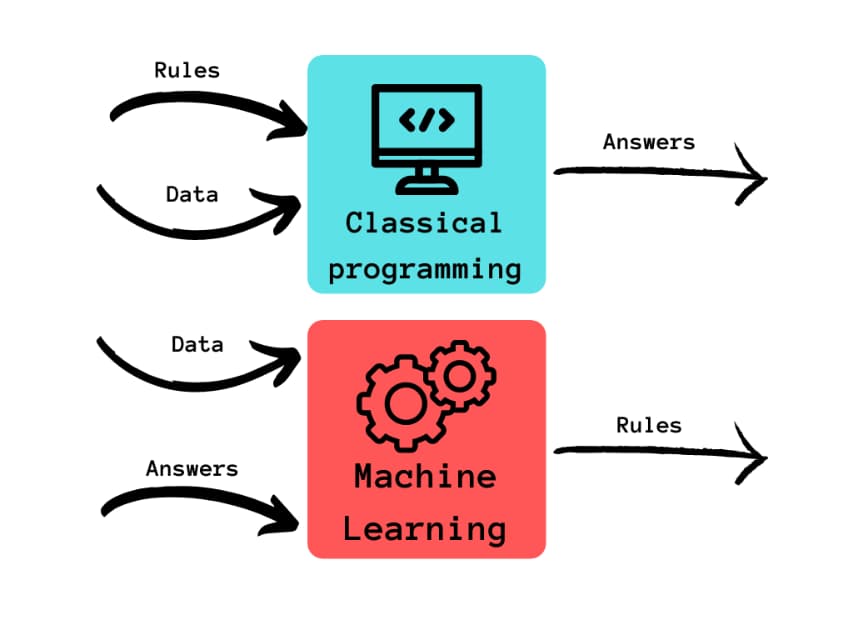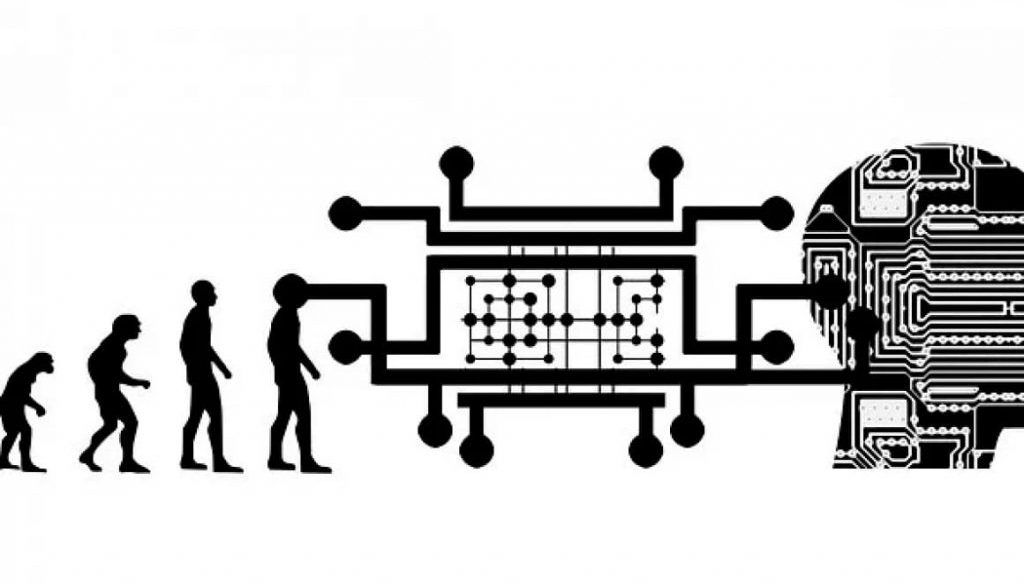Evolution of Artificial Intelligence
We live in a time when technology advances by leaps and bounds and in the middle of it we find Artificial Intelligence, something only theoretical in the past, expanded in almost all aspects of our life in the present and a hope for the future.
We are going to talk and learn more about the evolution of artificial intelligence.
What is Artificial Intelligence?
In the past, Artificial Intelligence has been described as: Any task performed by a machine that was previously considered to require human intelligence.
In the current we got new definitions such as: the ability of a system to adapt and improvise in a new environment, to generalize its knowledge and apply it to unknown scenarios.
Timeline of the Artificial Intelligence
During the more than 70 years of AI history, there have been 3 great eras separated by the central theme of their study and development:
Therefore, the chronology of artificial intelligence of these times would be the following:
-
- 1950-1970: Development of AI algorithms and methods.
- 1970-1990: Development of symbolic algorithms and expert systems also known as knowledge systems.
- 1990-Present: Machine learning and deep learning.
From these methods we can also divide between Model-Driven development and Data-Driven development:

- Where the MD need a series of instructions to arrive at the solution (for example using decision trees).
- And the DD use data with their solutions to “train” the system and the system provides the necessary rules so that when we input new data it answers with the corresponding solutions.
Uses of Artificial Intelligence
Artificial intelligence tries to imitate human behavior and for this it uses:
- Robotics: Helps control systems that allows machines to manage physical tasks such as movement while adjusting to changes in the environment.
- Natural Language Processing: Some applications include information retrieval, text mining, answering questions, and machine translation.
- Computer Vision: can be used for object recognition, event detection, scene reconstruction (mapping) and image restoration.

With the above fields AI is used today in many sectors such as:
- Virtual Assistants (Siri, Alexa, Cortana …)
- Finance (Trade and investment, auditing, underwriting …)
- Health (Scanning of images, sound analysis of the heart …)
- Service sector (HR and hiring, job search, marketing)
- Media and e-commerce (Deepfakes, music, videogames …)
- Transportation (simulators, autonomous vehicles, route planning …)
- Industry (damage analysis, sediment monitoring …)
Future of AI
AI is already integrated into our society and it is apparent that it is not going away anytime soon. Which ends up leading us to the next question: What does the future of AI hold for us?
Transparent AI:
Deep learning is made to replicate in a similar way neural networks and, like our brains, they receive data input and return an output but we do not know how they arrive at that solution. By not knowing how neural networks identify patterns and derive results, it is difficult to replicate and improve those results.</p
For this reason, the creation of a Transparent AI in which we can identify how our system reaches these solutions can suppose an exponential evolution of artificial intelligence.
Strong Artificial Intelligence:
All the AIs that have been created so far are part of the Weak Artificial Intelligence or Narrow AI type and work by focusing and solving specific tasks.
Instead the SAI (also called Artificial General Intelligence) is the AI that equals or exceeds the average human intelligence. This type of AI has the ability to use reason, represent knowledge, plan, learn, communicate, and integrate all these capabilities to solve a problem.
At the moment this type of AI is still far from being achieved but the evolution of artificial intelligence in technology and science continue to evolve exponentially and what years ago seemed like science fiction is now a reality.

We hope this article has been useful to you. If you have an engineering project in your hands and you think we can help you, here is the link where you can contact us and explain more about it.

